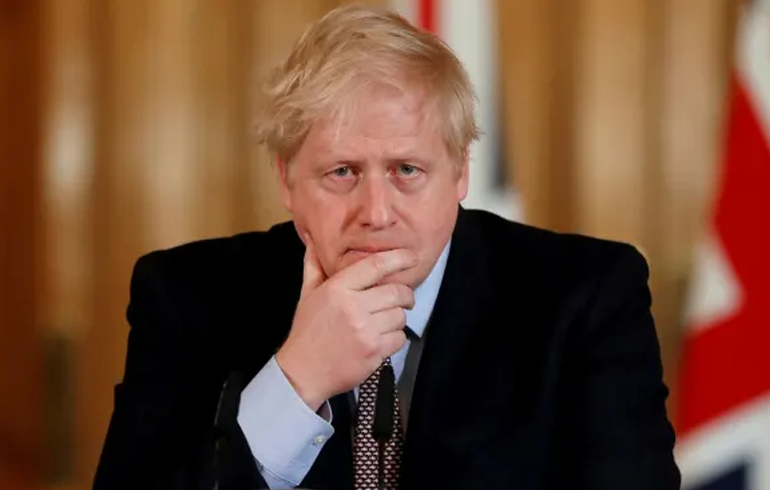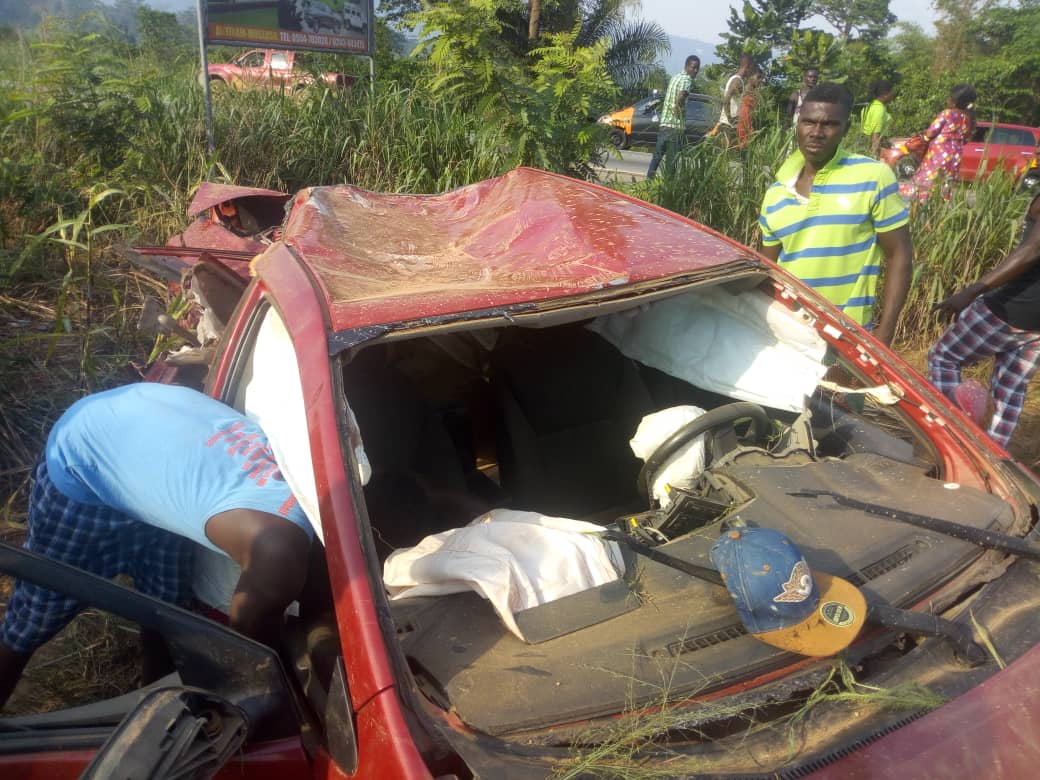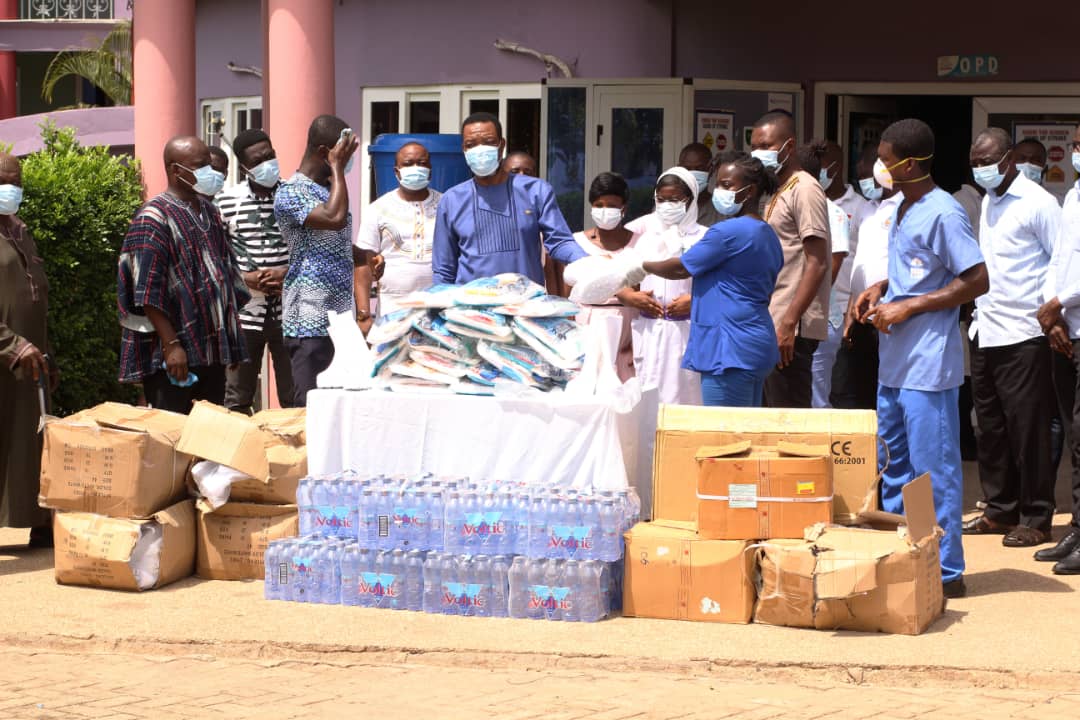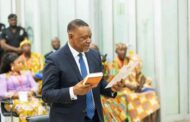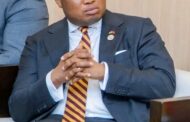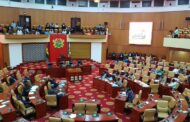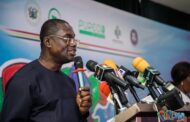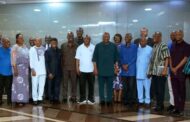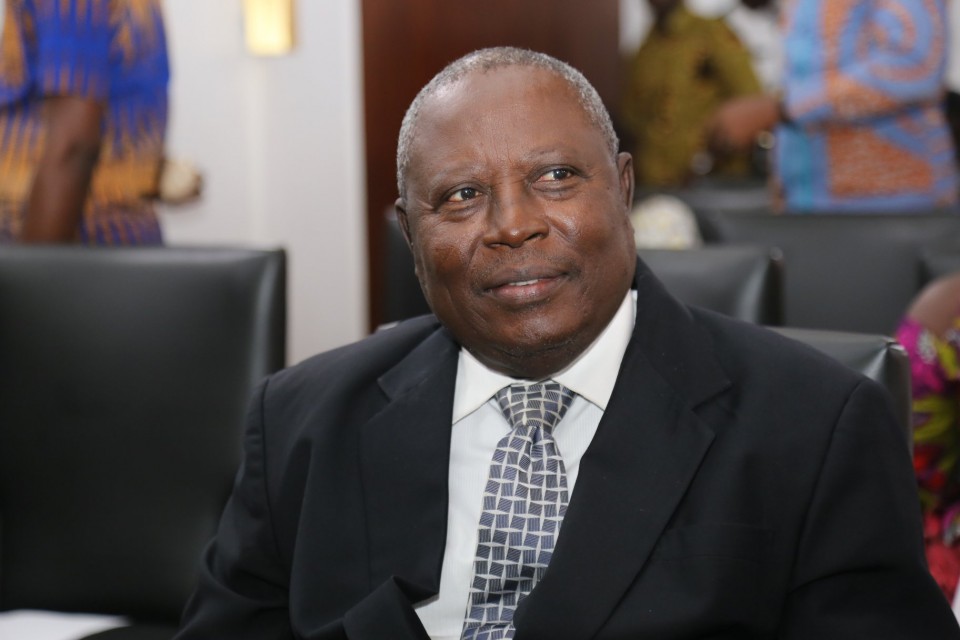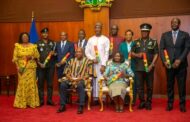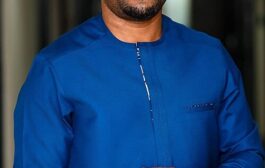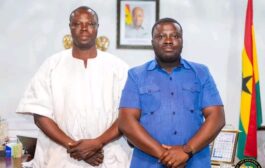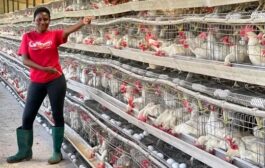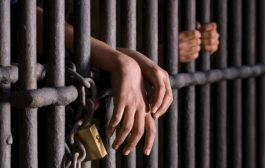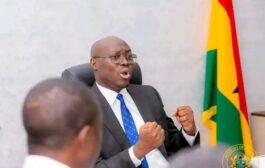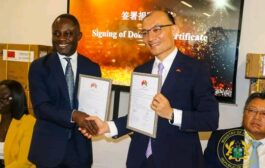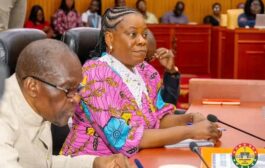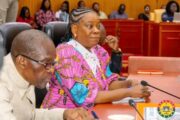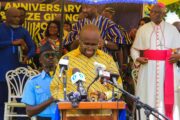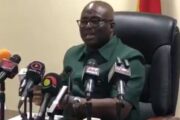Prime Minister Boris Johnson is “in good spirits” after spending the night in intensive care being treated for coronavirus, No 10 has said.
Mr Johnson, 55, was stable overnight, is being given oxygen and is not on a ventilator, a spokesman added.
The Queen has sent a message to Mr Johnson’s family and pregnant partner, saying they are in her thoughts.
It comes as Cabinet Office minister Michael Gove became the latest politician to self-isolate.
Mr Gove said he did not have symptoms but a family member did. He is continuing to work at home.
As of 17:00 on 6 April, of those hospitalised in the UK who tested positive for coronavirus, 6,159 have died – a record increase of 786 in a day, the Department of Health and Social Care said, compared with 439 on Monday.
Mr Johnson was admitted to St Thomas’ Hospital in central London with “persistent symptoms” of Covid-19 on Sunday and was moved to intensive care on Monday at 19:00 BST after his symptoms worsened.
Buckingham Palace said the Queen had sent a message to Mr Johnson’s family and his partner, Carrie Symonds, saying she was thinking of them and wished the PM a full and speedy recovery.
Prince William also tweeted a personal message of sympathy to the PM’s family, signing it off with his initial “W”, while his father, the Prince of Wales, sent a message from himself and the Duchess of Cornwall wishing Mr Johnson a “speedy recovery”, Clarence House said.
In a statement on Tuesday, a Downing Street spokesman said: “The prime minister has been stable overnight and remains in good spirits. He is receiving standard oxygen treatment and is breathing without any other assistance.
“He has not required mechanical ventilation or non-invasive respiratory support.”
A ventilator takes over the body’s breathing process when the disease has caused the lungs to fail.
Mr Johnson does not have pneumonia, Downing Street added.
Dr Jon Bennett, president of the British Thoracic Society, said it was “heartening” the PM was receiving “standard oxygen treatment” – through his nose or via a face mask – because in more serious cases it would be delivered through mechanical support, such as continuous positive airway pressure, high flow nasal oxygen or more invasive ventilators.
The spokesman said that the mood in government is “determined”, and ministers have a very clear plan set out by Mr Johnson for responding to the pandemic.
The prime minister’s weekly audience with the Queen will not go ahead, although she will be kept regularly informed about his condition, the spokesman added.
Speaking to BBC Radio 4’s Today programme, Mr Gove pledged that if there is any change in his condition “No 10 will ensure the country is updated”.
Today’s figures are a record high and bring the currently reported death toll above 6,000 for the first time. The rise of 786 is higher than Saturday’s previous peak of 708 deaths reported in a single day.
We also know that this figure misses deaths that occurred but have not yet been reported, so the true death toll at this point is likely higher.
If there is any silver lining to these grim figures, it is that they represent the fourth day in a row of below-trend growth.
For weeks up until Friday’s figures, the number of deaths had been doubling every three and a half days. Had that trend continued, we would have seen close to 1,400 deaths today.
So 786 is better than that, although it’s still too soon to know what’s causing it. It could be a big bottleneck in reporting (we’ve seen that after previous weekends) or genuine evidence that growth is truly slowing down.
More hopefully, for almost a week, daily new cases have been holding steady at about 4,000 a day, suggesting that, while we are still seeing new cases, the growth in this figure could be stalling.
Foreign Secretary Dominic Raab is deputising for the PM and chaired the government’s daily coronavirus meeting on Tuesday.
As the first secretary of state, Mr Raab is the minister designated to stand in for Mr Johnson if he is unwell and unable to work.
Mr Raab said earlier there was an “incredibly strong team spirit” behind the prime minister and that he and his colleagues were making sure they implemented plans that Mr Johnson had instructed them to deliver “as soon as possible”.
Some politicians have called for greater clarity on what Mr Raab’s role as deputy entails, including Tory MP Tobias Ellwood, who asked for details “as to where responsibility for UK national security decisions now lies”.
Lord Heseltine, who served as deputy prime minister under John Major, said it will be a “very difficult personal position” for Mr Raab, who “will be tested by the loneliness of the job”.
“He will be surrounded by lots of people who know what Boris Johnson said, believe Boris will be quickly back and have their own personal agendas anyway,” he said.
Former cabinet member and Tory peer Baroness Morgan told BBC Radio 5 Live’s Emma Barnett Show that while Mr Raab was “incredibly capable”, there was “no way that he would have wanted to be in this situation”.
She added: “I think the reason that people have been so stunned and taken aback and feel so involved with the prime minister’s health, is because Boris Johnson is prime minister, he gets a lot of coverage.
“Obviously, he was very front and centre in an election campaign, which seems like a million years ago but was only a couple of months ago, and people invest an awful lot of hope in their leaders at this time of national crisis.”
As of 09:00 on Tuesday, 213,181 people have been tested, of which 55,242 tested positive, the Department of Health and Social Care said.
Overall, 266,694 tests have been concluded, with 14,006 tests carried out on Monday.
The daily figure for the number of people tested on Monday excludes data from Manchester and Leeds because of a “data processing delay”, while the overall tests figure excludes Northern Ireland, the Department of Health added.
Mr Gove is the latest cabinet minister to self-isolate, after Mr Johnson, Health Secretary Matt Hancock and Scottish Secretary Alister Jack.
The government’s chief medical adviser, Prof Chris Whitty, and the PM’s adviser, Dominic Cummings, also spent time self-isolating after showing symptoms.
Mr Johnson’s condition means his fiancee, Carrie Symonds, who is pregnant with their first child, is unable to visit him in hospital.
She said at the weekend that she is “on the mend” after herself being forced to self-isolate after displaying symptoms of the disease.
Meanwhile, world leaders and fellow politicians have sent messages to Mr Johnson wishing him well.
Newly-elected Labour leader Sir Keir Starmer described it as “terribly sad news”, adding: “All the country’s thoughts are with the prime minister and his family during this incredibly difficult time.”
Russia’s Vladimir Putin wished Mr Johnson a speedy recovery, saying he was “convinced that your energy, optimism and sense of humour will help you overcome the disease”.
And US President Donald Trump said Americans “are all praying for his recovery”, describing Mr Johnson as “a very good friend of mine and a friend to our nation” who is “strong” and “doesn’t give up”.
In other developments:
Police were called to a funeral in the West Midlands after about 60 mourners attended, ignoring lockdown measures
A volunteer army of 750,000 people who signed up to support the NHS receives its first tasks
Experts warn against over-interpreting daily figures of people dying with coronavirus amid reporting delays
A team of scientists question the impact closing schools has on limiting the spread of coronavirus
Thousands of people are missed off the government’s high-risk list for Covid-19 despite meeting the criteria
China reported no coronavirus deaths – the first time since it started publishing daily figures in January.
New Zealand’s health minister calls himself an “idiot” after breaking the country’s lockdown by driving his family to the beach.
Source: BBC



